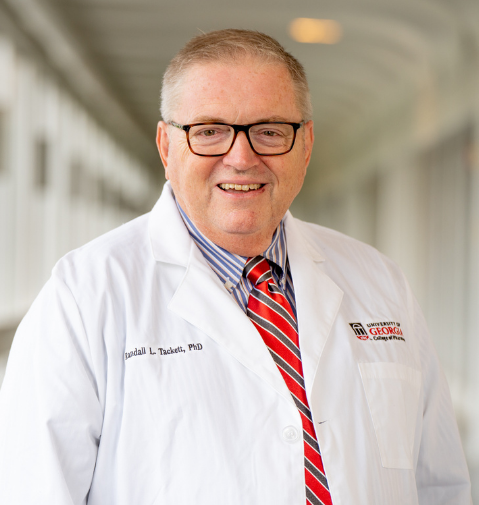Program Description
The purpose of the Program in Clinical and Experimental Therapeutics (CET) is to provide graduate training in therapeutics-related research that directly connects the basic science laboratory with the clinical practice setting.
The CET Program provides interdisciplinary graduate training program in therapeutics and drug development research utilizing the combined resources of the University of Georgia and Augusta University in Augusta, Georgia.
This association facilitates interaction with the faculty of both institutions. Members encompass a variety of health-related backgrounds and education and include Pharm.D.s, M.D.s, and Ph.D.s. Their clinical as well as basic science expertise allows for a truly interdisciplinary and translational approach to graduate training.
While the course requirements for graduate students enrolled in the program cover both areas, research opportunities allow students to focus on either the experimental (basic) or clinical science track.
Research Opportunities in CET
One of the primary objectives of the CET program is to encourage and facilitate research in the pharmaceutical sciences. CET faculty members have made significant accomplishments in their respective areas of interest and their ongoing projects are supported in part by grants from the National Institutes of Health, American Heart Association, the American Diabetes Association, and several pharmaceutical corporations.
Areas of expertise of CET faculty members include:
- Pathogenesis and treatment of stroke
- Pathogenesis and treatment of neurodegenerative disorders
- Pathogenesis and vascular biology of hypertension and diabetes-associated vascular complications
- Vascular biology of obesity and metabolic syndrome on microvascular dysfunction
- Disease mechanism and treatment of diabetic retinopathy
- Disease mechanism and treatment of optic neuropathy
- Molecular mechanisms regulating endothelial-barrier, vascular permeability and angiogenesis
- Extracellular matrix remodeling and pulmonary fibrosis
- Identification of potential therapeutic targets for prostate, bladder, and colorectal cancers
- Diabetes, Atherosclerosis and Dysregulation of smooth muscle contractility
- Molecular mechanisms regulating smooth muscle cell proliferation and contractile proteins
- Smooth Muscle Biology and Glucose transporters
Students enrolled in the CET program will have the opportunity to rotate through several laboratories. The laboratory rotations allow students to explore different areas of research and help them ultimately choose an area of study on which to focus.
We encourage you to visit each faculty member’s biosketch page and the CET Lab pages for more information on current and ongoing research projects.



